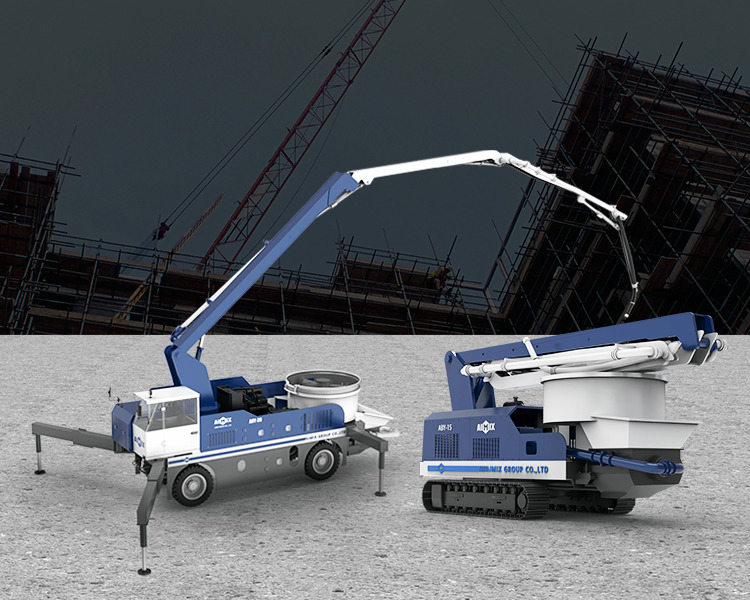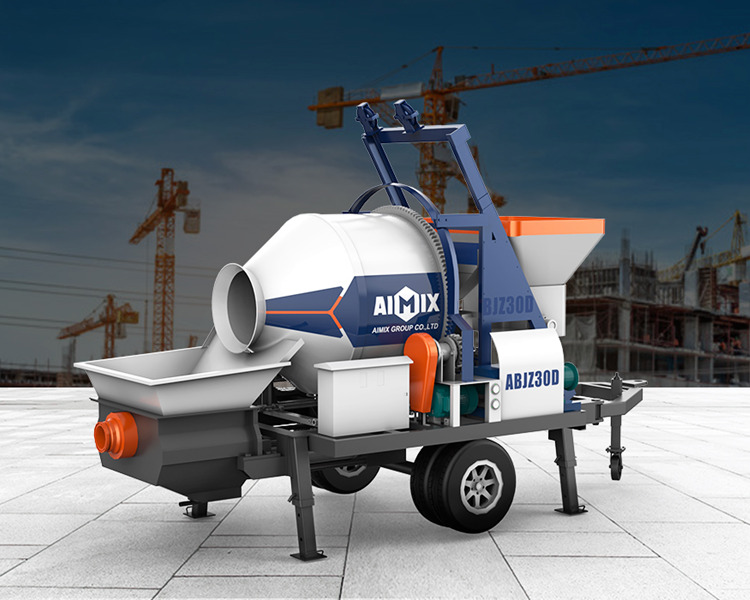When looking to purchase or rent a concrete pump, the price is one of the most crucial factors to consider. Concrete pumps are significant investments, and getting the most reasonable concrete pump price requires careful planning, research, and negotiation. Prices vary depending on factors such as the type of pump, its capacity, brand, and additional features. This guide provides valuable tips on how to obtain the best price for your concrete pump while ensuring that the quality and performance meet your project’s needs.

Understand Your Project Requirements
Before you begin looking for a concrete pump, it’s essential to have a clear understanding of your project’s specific requirements. Concrete pumps come in various types, including trailer-mounted, truck-mounted, boom pumps, and stationary pumps. Each type is designed for different applications, and selecting the right one can significantly impact both performance and price.
Key Questions to Answer:
What type of concrete are you pumping? Some pumps are designed to handle lightweight or high-strength concrete, while others may be better suited for standard mixes.
How far and how high do you need to pump the concrete? The size and power of the pump will affect its price. For instance, a pump like boom concrete pump that can reach greater heights or longer distances typically costs more.
What is the scale of your project? Large-scale projects, such as high-rise buildings, require more powerful pumps, whereas smaller projects like residential buildings can work with smaller, more affordable pumps.
By understanding the specific needs of your project, you can narrow down your options and focus on finding a pump that meets both your technical requirements and your budget.
Compare Prices from Different Sources
To get the best concrete pump price, it’s important to compare prices from various sources. Prices can vary depending on the manufacturer, distributor, and location. By obtaining multiple quotes, you can identify a reasonable price range and negotiate a better deal.
How to Compare Prices:
Manufacturer Websites: Start by visiting manufacturer websites to get a sense of the retail price of different concrete pumps. Many manufacturers like Aimix offer detailed product specifications and price information directly on their websites.
Online Marketplaces: Platforms such as Alibaba, Made-in-China, and eBay feature multiple suppliers and give you the opportunity to compare prices for similar models. However, it’s crucial to verify the legitimacy of the seller and the quality of the product.
Local Dealers and Distributors: Check with local distributors who might offer competitive pricing, especially when factoring in shipping and handling costs. Sometimes, local dealers provide better pricing options or promotional discounts.
Used Equipment Sellers: If you’re on a tight budget, consider looking at used or refurbished concrete pumps. Many reputable sellers offer well-maintained second-hand equipment that can still deliver strong performance at a fraction of the cost of new units.
When comparing prices, make sure to factor in the shipping costs, warranty, and after-sales services. Sometimes a cheaper price can come at the cost of inferior service or hidden fees.
Consider Purchasing a Used Concrete Pump
If your budget is limited, purchasing a used concrete pump may be a practical solution. Used equipment is often significantly cheaper than new models and can still be in excellent working condition if maintained properly. However, purchasing used equipment comes with its own set of challenges, so it’s important to be diligent during the process.
Tips for Buying Used Concrete Pumps:
Inspect the Equipment Thoroughly: If you’re buying a used pump, it’s crucial to inspect the equipment in person. Check for wear and tear, signs of damage, or poor maintenance practices that could affect its performance. If possible, request a demonstration of the pump’s functionality.
Check the Equipment’s History: Ask the seller for maintenance records, repair history, and the number of hours the pump has been in use. This will give you an idea of how much life is left in the machine.
Verify the Seller’s Reputation: When purchasing from used equipment platforms, make sure the seller has good reviews and a trustworthy reputation. Many online marketplaces have a rating system that allows previous buyers to share their experiences.
Get Professional Inspection: Consider hiring a professional technician to inspect the equipment before making a purchase. A technician can spot potential issues that may not be immediately visible to an untrained eye.
Used concrete pumps are often more affordable, but buyers must ensure the equipment will perform reliably on the job site.

Factor in After-Sales Services and Warranty
While price is undoubtedly important, it should not be the only factor in your decision-making process. Consider the after-sales services, warranty, and support offered by the manufacturer or distributor. A reasonable price combined with excellent support can add value to your purchase, ensuring that your concrete pump operates efficiently for years to come.
Key Considerations:
Warranty: A solid warranty gives you peace of mind knowing that if anything goes wrong, you can get it repaired or replaced at no extra cost. Look for pumps that come with at least a one-year warranty or longer.
Maintenance and Repairs: Some sellers offer maintenance packages or discounts on parts and repairs. If you’re buying a used pump, ask about any available service contracts.
Availability of Spare Parts: Ensure that the manufacturer or seller has easy access to spare parts for the concrete pump. Pumps that are compatible with common parts are easier and cheaper to maintain.
A slightly higher price may be worthwhile if it comes with reliable after-sales support, reducing the potential for costly downtime in the future.
Negotiate the Price
Once you’ve narrowed down your options, it’s time to negotiate the price. Many sellers expect buyers to negotiate, especially for bulk orders or larger purchases. Use your research on competitive prices to negotiate a better deal, and don’t hesitate to ask for additional discounts or incentives.
Tips for Negotiating:
Highlight Multiple Purchases: If you plan to buy multiple units or related equipment, use this as leverage to negotiate a bulk discount.
Discuss Payment Terms: Some sellers may offer discounts for upfront payments or longer contract terms. Consider discussing flexible payment options to reduce the overall price.
Ask for Additional Services: If the seller is unwilling to lower the price, ask if they can include additional services, such as free shipping, extended warranties, or maintenance packages.
Negotiation can be a powerful tool in lowering the overall cost of your concrete pump, so don’t hesitate to engage in discussions with the seller.
Evaluate Long-Term Costs
While securing a low purchase price is important, it’s also essential to evaluate the long-term costs associated with the concrete pump. A cheaper pump may have higher operating or maintenance costs, which could make it more expensive over time.
Factors to Consider:
Fuel Efficiency: Pumps that are fuel-efficient can save you money on operating costs. Look for pumps with low fuel consumption and reliable engines.
Maintenance Costs: Consider the ease of maintenance and the cost of spare parts. Pumps that are easier and cheaper to maintain can save you money in the long run.
Resale Value: High-quality concrete pumps tend to retain their value better than lower-quality options. If you plan to resell the pump after completing your project, consider purchasing a pump with good resale potential.
Getting the most reasonable concrete pump price requires a thoughtful and strategic approach. By understanding your project’s requirements, comparing prices, considering used equipment, factoring in after-sales services, negotiating effectively, and evaluating long-term costs, you can make an informed decision that provides the best value for your investment. While price is a crucial element, ensure that you also prioritize quality and reliability to ensure that your concrete pump serves your needs efficiently and effectively throughout the duration of your project.